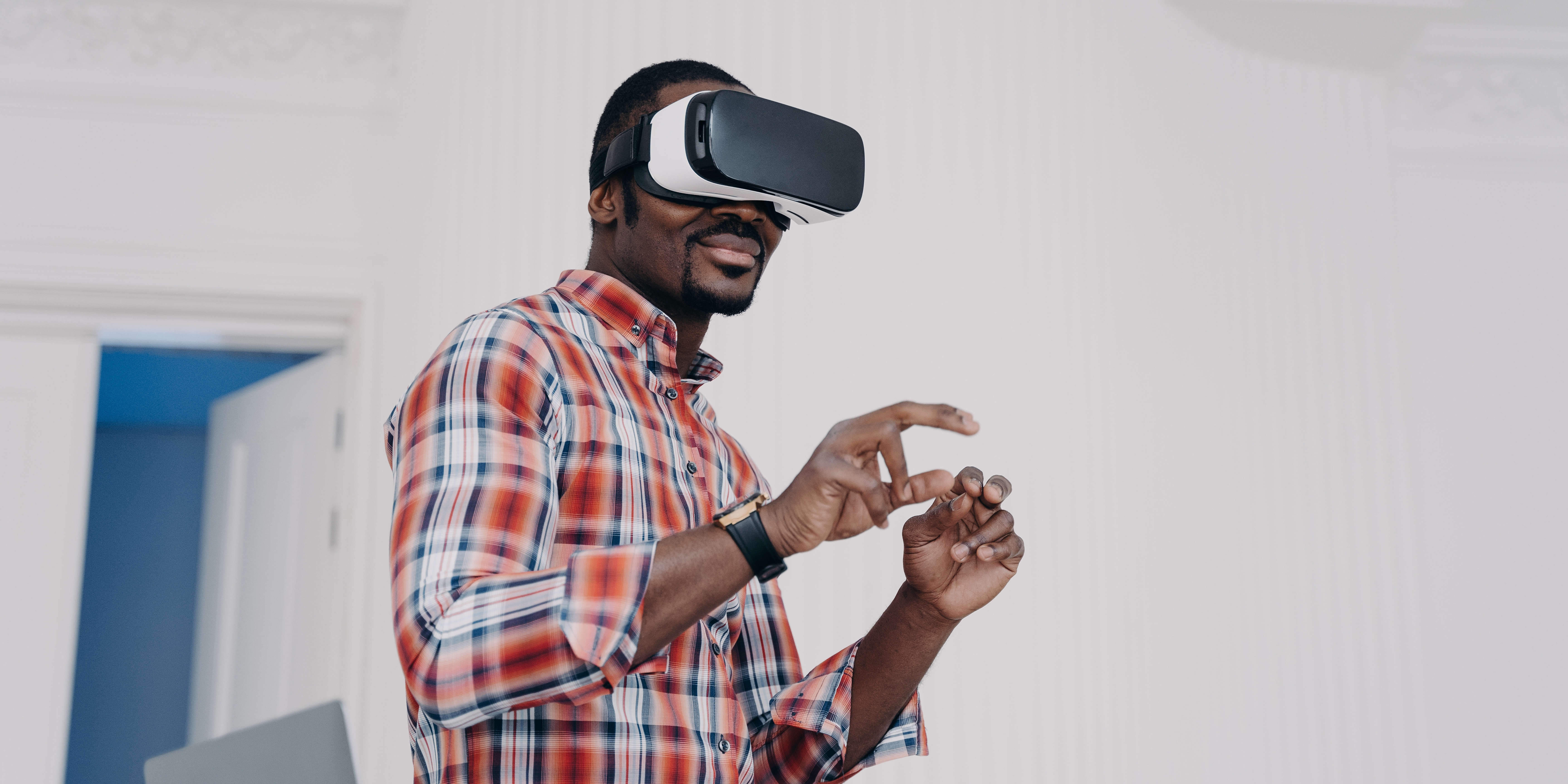Inspironlabs | 7 july, 2023
The Importance of VR and AR to Boost Company Marketing and Revenue
Written by Shivam Pandey
Introduction :
In today's digital age, companies are constantly seeking innovative ways to engage with their target audience and drive revenue growth. Virtual Reality (VR) and Augmented Reality (AR) have emerged as powerful tools that can revolutionize company marketing strategies. These immersive technologies enable businesses to create interactive and memorable experiences for customers, ultimately leading to increased brand awareness, customer engagement, and ultimately, higher revenues. In this blog post, we will explore the importance of VR and AR in boosting company marketing and revenue.

Enhancing Customer Engagement :
VR and AR provide unique and immersive experiences that captivate customers and leave a lasting impression. By incorporating these technologies into marketing campaigns, companies can create interactive and personalized experiences that go beyond traditional advertising methods. For instance, AR can allow customers to visualize products in their own environment before making a purchase, while VR can transport them to virtual showrooms, events, or destinations. These experiences foster a deeper emotional connection with the brand, resulting in higher engagement levels and increased likelihood of conversions.

Increased Brand Awareness :
In a crowded marketplace, capturing consumers' attention and standing out from the competition is crucial. VR and AR offer companies the opportunity to create memorable brand experiences that generate buzz and word-of-mouth promotion. Interactive VR and AR applications, such as gamified experiences or immersive storytelling, can attract significant media coverage and social media shares, leading to increased brand visibility. As consumers share their exciting experiences with friends and family, the brand's reach expands organically, leading to greater brand awareness and potential customer acquisition.

Showcasing Product Features :
One of the challenges in marketing is effectively showcasing product features and benefits to potential customers. VR and AR provide companies with a powerful tool to overcome this challenge by enabling customers to interact with products virtually. AR can overlay digital information, such as specifications or usage instructions, onto the physical product, making it easier for customers to understand its features. VR, on the other hand, can allow customers to experience the product in a simulated environment, highlighting its functionalities in a more engaging and immersive manner. By enabling customers to visualize and experience products, companies can significantly improve their chances of converting leads into sales.

Personalized Marketing Experiences :
VR and AR technologies allow companies to deliver personalized marketing experiences tailored to individual customers. By collecting data on customer preferences and behavior, businesses can create customized virtual or augmented experiences that resonate with each customer segment. For example, an apparel retailer can use AR to offer virtual fitting rooms that simulate how different outfits would look on customers. This level of personalization not only enhances customer satisfaction but also increases the likelihood of purchase, leading to improved revenue generation.
Enhancing Marketing Analytics :
VR and AR offer advanced tracking and analytics capabilities that provide valuable insights into customer behavior. These technologies can capture data on customer interactions, such as gaze tracking, movement patterns, and engagement levels. By analyzing this data, companies can gain a deeper understanding of customer preferences, identify areas for improvement, and refine marketing strategies accordingly. This data-driven approach helps optimize marketing campaigns, increase conversion rates, and maximize revenue potential.
Conclusion :
Virtual Reality and Augmented Reality have become indispensable tools for companies looking to boost their marketing efforts and drive revenue growth. These immersive technologies enable businesses to create engaging and interactive experiences that capture customers' attention and foster strong brand connections. By leveraging VR and AR, companies can enhance customer engagement, increase brand awareness, showcase product features, deliver personalized experiences, and gain valuable marketing insights. As the adoption of VR and AR continues to grow, businesses that embrace these technologies will have a significant advantage in capturing the attention and loyalty of customers, ultimately leading to improved marketing outcomes and revenue generation.
 +91-789-269-7903
+91-789-269-7903 +1-206-922-2057
+1-206-922-2057


